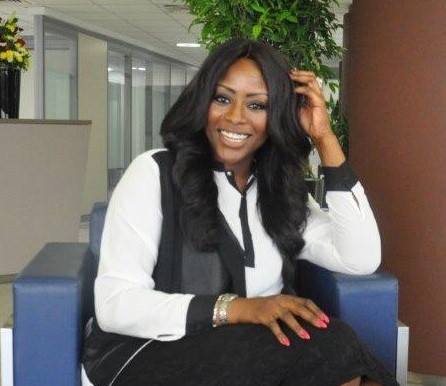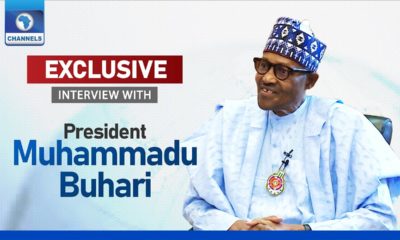Features
Ivie Omoregie: The Truth about the Indigenous People of Biafra
 Over the last few months a lot of media attention has been placed on the growing Indigenous People of Biafra (IPOB) movement.
Over the last few months a lot of media attention has been placed on the growing Indigenous People of Biafra (IPOB) movement.
Led by the now infamous Nnamdi Kanu, the group is demanding for the right to self determination according to UN Charter and African Union Charter on Human and People’s Rights, which clearly states that:
“Indigenous People have the right to Self-determination. By virtue of that right, they freely determine their political status and freely pursue their economic, social and cultural development”
Many people have asked me many questions on this topic, hence why I want to answer these questions in this article.
What Do They Want?
The harsh truth is that the majority of the IPOB supporters believe they have been marginalized and are not being fairly represented at the federal level. Considering that Igbo people represent roughly 18% of the nation’s population (32 million people), many have noted the fact that since the inception of the country, only 2 Igbo men have held prominent positions in the Federal Government.
Many have stressed that there seems to be clear discrimination – as certain elements of the basic infrastructure, which they believe they need to further develop their business abilities – have been “intentionally withheld”. They further stress that for the last 3 decades the Igbo population has significantly contributed to the gross domestic product of the country, yet their contributions have not been adequately acknowledged at the federal level (all must agree that with regard to trading, people of Igbo origin tend to have an unrivalled rate of success).
This notion was further antagonized when President Buhari made a statement after his inauguration where he openly declared that he would not be in favor of any section of the country who might have voted against him during the 2015 elections (from official electoral votes, most states in the south-south and south-eastern regions of Nigeria would be captured by this statement).
All these grievances have lead to cries for self-determination; in essence segregating them from governance by the Federal Republic of Nigeria, and creating a new country to be known as Biafra.
“We Biafrans, in pursuit of our inalienable, irreducible and God given right to restore our stolen sovereignty, do hereby state that we do not require the permission of the Nigerian State or her government officials to grant us our natural freedoms”
How Do They Want To Achieve This?
The IPOB group has demanded for a referendum (or if simply put, a restructuring of the country), whereby a simple question is put to public vote, and the public responds with a simple yes or no answer; for example ‘Should Biafra be an independent country?’.
In other jurisdictions referendums are held where there is a need to make a change to the countries constitution or to change an existing law. Referendums may be done at different levels of government (i.e. Federal or State) and the criteria for each referendum may vary depending on the circumstances, however on average it is by simple majority (i.e. 51% in favor).
Unfortunately under the 1999 Nigerian Constitution there is no such thing as “Referendum”; and thus the term is unknown to Nigerian law. Therefore for a referendum to be held in Nigeria, the National Assembly must first change the Constitution to this effect, before embarking on the actual referendum. As we have seen over the years, since the inception of the 1999 Constitution amendment of same has been extremely complicated, bureaucratic and time consuming.
How Do They Know They Will Win?
Many critics have stressed that seeing as the entire Igbo population only represents 18% of the total population of the country, how do the IPOB intend to achieve the 51% simple majority they might need to have their wishes met. These people empathize that the notion of a “Republic of Biafra” was contrived several decades ago and every Nigerian knows the damaged this notion caused then… why are things different now.
A spokesman for the IPOB has noted that the intended nation of Biafra would not only consist of the existing Igbo states (Abia, Anambra, Ebonyi, Enugu, Imo) but would also include Akwa Ibom, Bayelsa, Cross River, Delta, and Rivers states as well as Igbanke in Edo state, Igala in Kogi State. With this new geographic region, the IPOB population would be significantly more than the 18% representing the Igbo population.
Why Has Nnamdi Kanu Not Been Re-Arrested For Flouting His Bail Conditions?
The blatant truth is that initially arresting Mr. Kanu was unlawful. By virtue of the Nigerian Constitution every Nigerian has: –
1. The right to Freedom of Expression – every individual has the right to hold their own opinions and the right to express these opinions/ideas without interference.
2. The right to Freedom of Assembly and Association – every individual has the right to freely associate and assemble with whom ever they wish to associate and assemble with. They may freely belong to any political party, trade union or other association.
Based on the above premise I believe it was against Mr. Kanu’s Constitutional rights to imprison him in the first instance, thus any bail condition deriving from this illegal arrest is invalid and cannot be enforced. This could also be the reason why Mr. Kanu has so brazenly disregarded and flouted these bail conditions.
Conclusion
One thing that I must stress is the fact that it is not all Igbo people whose beliefs align with that of the IPOB, many don’t; even where they do share the same grievances as the IPOB, many do not support the manner in which the issue is being addressed.
Many have claimed that although the IPOB’s demand for self-determination is not synonymous with war or violence, given the history of the issue, this is a highly likely outcome. The truth is, discussions have not been exhausted… yet we are already seeing anarchy and disharmony in some of the states of the country.
Using Lagos State as an example, the Lagos State Government, like many other state governments, also have their own issues with the Federal Government, but rather than requesting for severance from governance by the Federal Government, the Lagos State Government is working around the issues to come to an amicable and legal compromise. Lagos state can survive on its own, without any proceeds from the oil revenues of the country, but still the Lagos State Government chooses to cooperate and does not encourage violence or separative tendencies.
However, in saying this, I cannot help but wonder what would have been of the IPOB movement if Mr. Kanu had not been arrested in the first place. To many, he was simply a rambling lunatic saying his own, but his arrest seems to have agitated certain groups and brought thoughts of “what if” to their minds.























